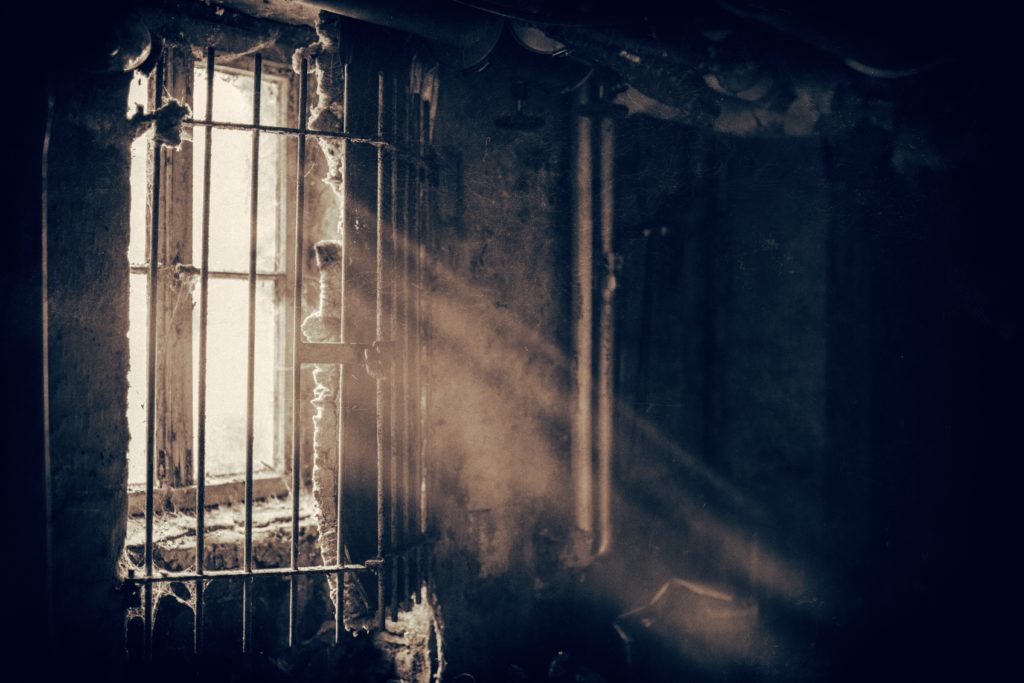In my research and teaching, I’m always amazed by this trend: religious activity often correlates with forgetting what God really wants. We can fill our lives with church, singing, and prayer but miss the point.
Reading the biblical prophets reminds me of watching Wile E. Coyote chase Road Runner as a kid. The prophets try everything they can to break through to the people, sometimes going to ridiculous lengths. But their message rarely catches up as the people race through their routines.
The irony is that the people won’t listen because they’re already certain that they know what God wants, and they’re busy doing it. So they see these prophets as distractions or rebels, and diligently defend their orthodoxy.
Isaiah summarizes the problem like this:
“No one stops to think.” Isaiah 44:19
This is a wild and arresting biblical claim: we can be convinced that we’re running towards God but actually be running away from God. Devotion can be dangerous, if we’re not willing to stop and think about it.
Take a look at the Hebrew prophet Isaiah.
In Isaiah 1, the prophet attacks orthodox spirituality. He targets “offerings,” “assemblies,” “holidays,” and “prayer” (1:11-13). It’s hard to make a more conservative list of activities that most devout people think God obviously wants.
But Isaiah shockingly calls them “meaningless,” “detestable,” and “worthless.” In fact, God says, “I hate [them] with all my being” (1:14). God rarely speaks so severely against even the most serious sin in the Bible. So for God to say this about orthodox devotion is remarkable.
The problem is that these people combined their devotion with indifference to the sufferings of outsiders and the oppressed. While they were doing their quiet times and church services, God was watching the nobodies beyond the walls, unseen and unheard. And for God, these nobodies matter most – even more than our whole system of worship.
So this is what Isaiah says:
“Wash and make yourselves clean. Take your evil deeds out of my sight; stop doing wrong. Learn to do right; seek justice. Defend the oppressed. Take up the cause of the fatherless; plead the case of the widow.” Isaiah 1:16-17
What God really wants is for us to treat people with courageous kindness and inclusivity, especially the overlooked and defenseless. God would rather burn down the church, as long as we’re busy outside its walls passionately embracing the hated and vulnerable, the asylees and optionless with his love.
Of course, it’s easy to imagine these religious people being completely unfazed by Isaiah’s critique. After all, wasn’t his message just a “liberal agenda,” a “secular morality” driven by “social justice” without real devotion? I suspect that if his words weren’t written in the Bible, many devout Christians today would have the same response. In fact, many still do.
But it’s Isaiah who’s unfazed.
In chapter 58, Isaiah again raises his voice “like a trumpet.” Yes, Israel “seeks God day after day.” They “seem eager to know God’s ways” and see themselves as “a nation that does what is right” (58:2). They claim to defend “just decisions” in their courts and call for God’s presence. In fact, they even fast and pray for God’s favor on their country (58:3).
But all Isaiah sees is “rebellion” and “sins” (58:1). Why? Because the people “exploit all their workers” (58:3). They’re polarized and at odds with one another (58:4). They practice devotion with indifference to human suffering and injustice (58:5).
Once again, this is what God really wants:
“to loose the chains of injustice… to set the oppressed free and break every yoke… to share your food with the hungry and to provide the poor wanderer with shelter.” Isaiah 58:6-7
Isaiah insists that this is what true revival looks like. When we devote ourselves to these things, our “light will break forth like the dawn” and God will be intimately present with us (58:8).
As we head toward the holidays, it’s easy to rev up our religious devotion through things like going to church, giving offerings, praying, and singing. But I hope we’ll take up Isaiah’s challenge and “stop to think.”
What does God really want?
What is God looking for from us?
What does God promise to bless and reward?
Isaiah and the other prophets are clear: God doesn’t want our religiosity, at least not on its own. God wants our justice and mercy for the outsiders and oppressed – the women, men, and children that most of our society sees as unworthy and unwelcome.
The Christmas story contains an astonishing detail: Jesus was born in an animal cave and placed in a feeding bucket, because “there was no guest room available for them” (Luke 2:7). We don’t know why, but we do know that Jesus’s parents were poor and that they were about to become refugees seeking safety and shelter in a western country (Matthew 2:13-18). Were they seen as unworthy and unwelcome?
This Christmas, may we not reject the holy family because our doors are closed in prayer and our time is only for church. May we courageously “stop to think” and keep our “guest room available” for those who need it most. God wants justice and mercy.
Jesus is coming.




